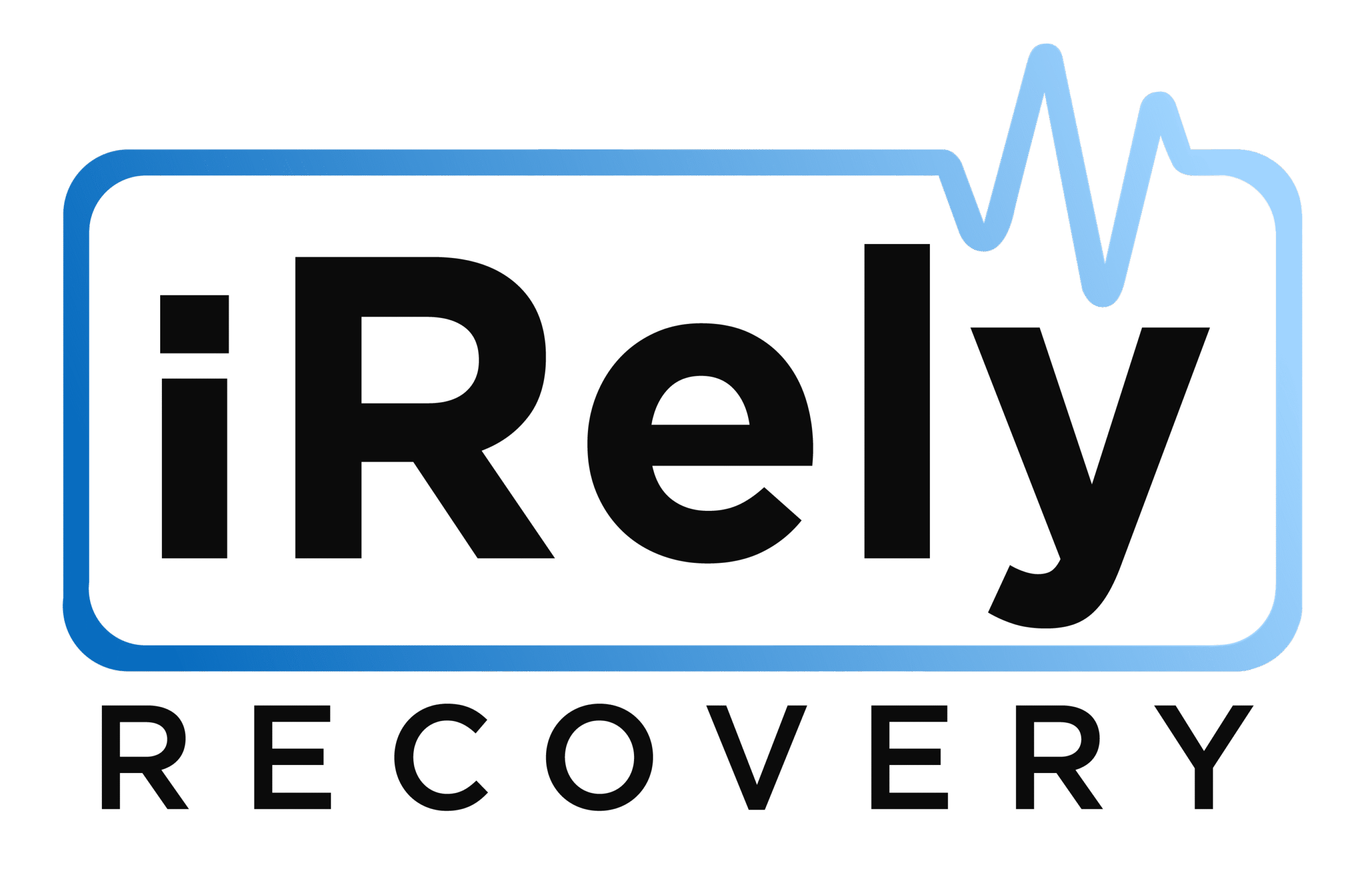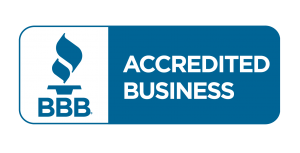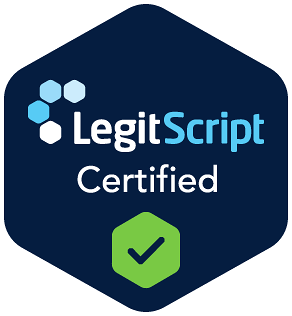Recovery isn’t just possible. It’s achievable. And you don’t have to do it alone.
At iRely Recovery, our recovery-oriented program places patients at the center of care, delivering person-centered, strengths-based services that actively link treatment to community resources, including mutual-help groups, housing, employment, primary care, and social supports, so that patients can access a broad continuum of care without barriers.
If you or someone you love is struggling with addiction, iRely stands ready to help. With the proper care, support, and resources, you can overcome addiction and build a better, more fulfilling life.
THERAPIES & TREATMENT PROGRAMS
A Recovery-Oriented System of Care (ROSC) is a comprehensive approach to treating substance use disorders. ROSC focuses on the whole person and emphasizes long-term healing through a network of community-based services tailored to the strengths, needs, and personal goals of our patients.
Unlike traditional treatment, which often centers on short-term fixes, ROSC provides ongoing support to help you achieve and maintain recovery and provides person-centered care, recognizing that there are many paths to recovery.[1]
When treating substance use with a recovery-oriented approach, the care providers must be intimately familiar with recovery, having lived it themselves.[2]
How Long Does a Recovery-Oriented System of Care Take?
Recovery is a journey. It takes time and consistent effort to heal and rebuild a life following addiction. Progress often comes in small, gradual steps rather than dramatic leaps, and relapse or other setbacks are a natural part of the process.
True recovery involves learning, growing, and finding strength in perseverance, one day at a time. Here’s what the journey can look like:
- Pre-Recovery Support: Even if you’re still getting comfortable with what recovery may look like for you, we’re here to encourage and support you.
- Starting Treatment: When you’re ready, we’ll create a personalized care program that may include detox, residential treatment, or outpatient services. Your customized treatment plan will incorporate proven therapies, such as Recovery-Oriented Cognitive Therapy, facilitated by a multidisciplinary clinical team.
- Comprehensive Treatment: We help you address addiction, mental health, and trauma while building the skills you need for a better future.
- Aftercare Support: Recovery doesn’t end after completing a treatment program. Aftercare offers ongoing support as you rebuild relationships, achieve career goals, and find your place in the community.
Recovery-Oriented Programs
Personalized care is a key component of ROSC. Finding the right program can make a significant difference in your recovery journey. Proven recovery programs include:
- SMART Recovery: Focuses on self-empowerment and practical tools to manage cravings and triggers.
- 12-Step Programs: Offer a structured, spiritual approach with peer support through groups like Alcoholics Anonymous, Narcotics Anonymous, Sex and Love Addicts Anonymous, Heroin Anonymous, or Marijuana Anonymous.
- Against The Stream: A Buddhist-inspired recovery program focused on mindfulness and meditation practices.
- Refuge Recovery: A community-based program that uses Buddhist principles to support healing from addiction.
The iRely Recovery-Oriented Approach
At iRely Recovery, we focus on principles that help make recovery possible:
- Personalized Care: Your journey is unique, and we tailor our support to fit your strengths, needs, and goals.
- There Are Many Paths to Recovery: Recovery looks different for everyone, whether through 12-step programs, SMART Recovery, or faith-based approaches; we support what works best for you.
- Inclusive and Respectful Treatment: We embrace diversity and respect your values, culture, and beliefs. Your dignity matters to us, which is why language access, cultural relevance, and disability accommodations are part of iRely’s commitment to you.
- Offering Hope and Strength: Recovery is possible, and every step is important. Every small win is a step toward lasting change.
- Workforce Development: A strong emphasis is placed on workforce development, which ensures continuous training, values staff, and hires representatives of the communities served, including individuals with lived recovery experience. Our staff function as recovery guides, not mere experts, and collaborate with patients to identify strengths, set goals, and co-create recovery plans using Motivational Interviewing, Cognitive Behavioral Therapy, Recovery-Oriented Cognitive Therapy, and coping skills.
Recovery-Oriented Care for Addiction at iRely Recovery
We offer a comprehensive range of services designed to empower you or your loved one on the recovery journey. The program conducts organizational readiness assessments (SWOT, readiness scales) and develops a recovery roadmap with patient input at every level, from intake to discharge. Outreach emphasizes open access and services in nontraditional settings to remove barriers, and progress is monitored for continuous improvement.
Clinical Services
- Medically assisted detox, medication-assisted treatment, and clinical withdrawal detox management
- Residential treatment
- Evidence-based therapies such as CT-R and DBT
- Dual diagnosis treatment for co-occurring disorders
Community Support
- Peer mentors who understand what you’re going through
- Alumni networks to stay connected after formal treatment ends
- Recovery housing options to maintain accountability while transitioning back to daily life
- Family support and education to help loved ones understand addiction
- Help rebuild relationships to ensure a strong support network during and after treatment
- Job training programs and employment resources
Frequently Asked Questions about Recovery-Oriented Systems of Care
What makes Recovery-Oriented Systems of Care different from other forms of addiction treatment?
ROSC focuses on long-term recovery, helping with all parts of life, including mental health, relationships, and purpose. It enables you to build the resources you need for lasting recovery instead of just treating substance use.
Can my family be involved in recovery-oriented treatment?
Yes, involving family in treatment offers many benefits to long-term recovery.[3] We offer family therapy and support to help rebuild trust and connections with loved ones. Involving family in the process fosters open communication and creates a supportive environment for healing. By including family, we help ensure everyone is on the same page, making progress more sustainable and meaningful for everyone involved.
What if I've relapsed before?
It’s important to remember that relapse isn’t a failure. For many people, relapse is part of the process. We’ll help you understand what happened and establish a plan to get back on track.
Are there different recovery options in ROSC?
Yes. At iRely, we explore various methods, like 12-step programs, SMART Recovery, Against the Stream, and others.
How do I know if I'm ready to start treatment?
Just thinking about change is a good first step. We’ll meet you where you are and help you move forward.
Sources
[1] Recovery-Oriented systems of care. (n.d.). Office of Addiction Services and Supports. https://oasas.ny.gov/providers/recovery-oriented-systems-care
[2] Substance Abuse and Mental Health Services Administration (US). (2023). Chapter 5—Implementing Recovery-Oriented Counseling Programs. Counseling Approaches to Promote Recovery From Problematic Substance Use and Related Issues – NCBI Bookshelf. https://www.ncbi.nlm.nih.gov/sites/books/NBK601484/
[3] Substance Abuse and Mental Health Services Administration (US). (2020). Chapter 1—Substance Use Disorder Treatment: Working with families. Substance Use Disorder Treatment and Family Therapy – NCBI Bookshelf. https://www.ncbi.nlm.nih.gov/books/NBK571084/





